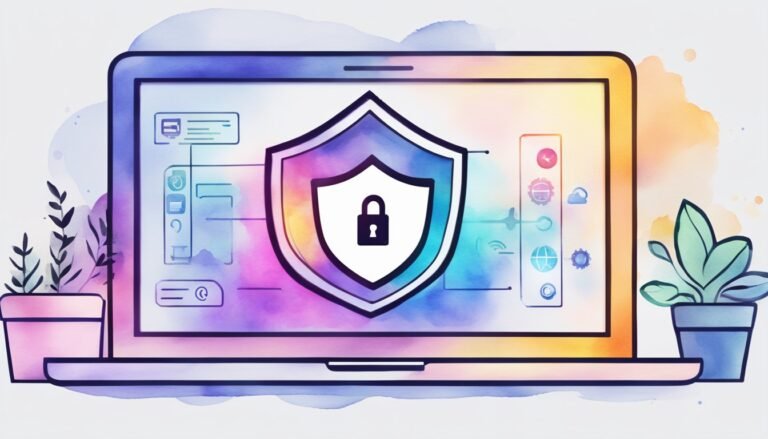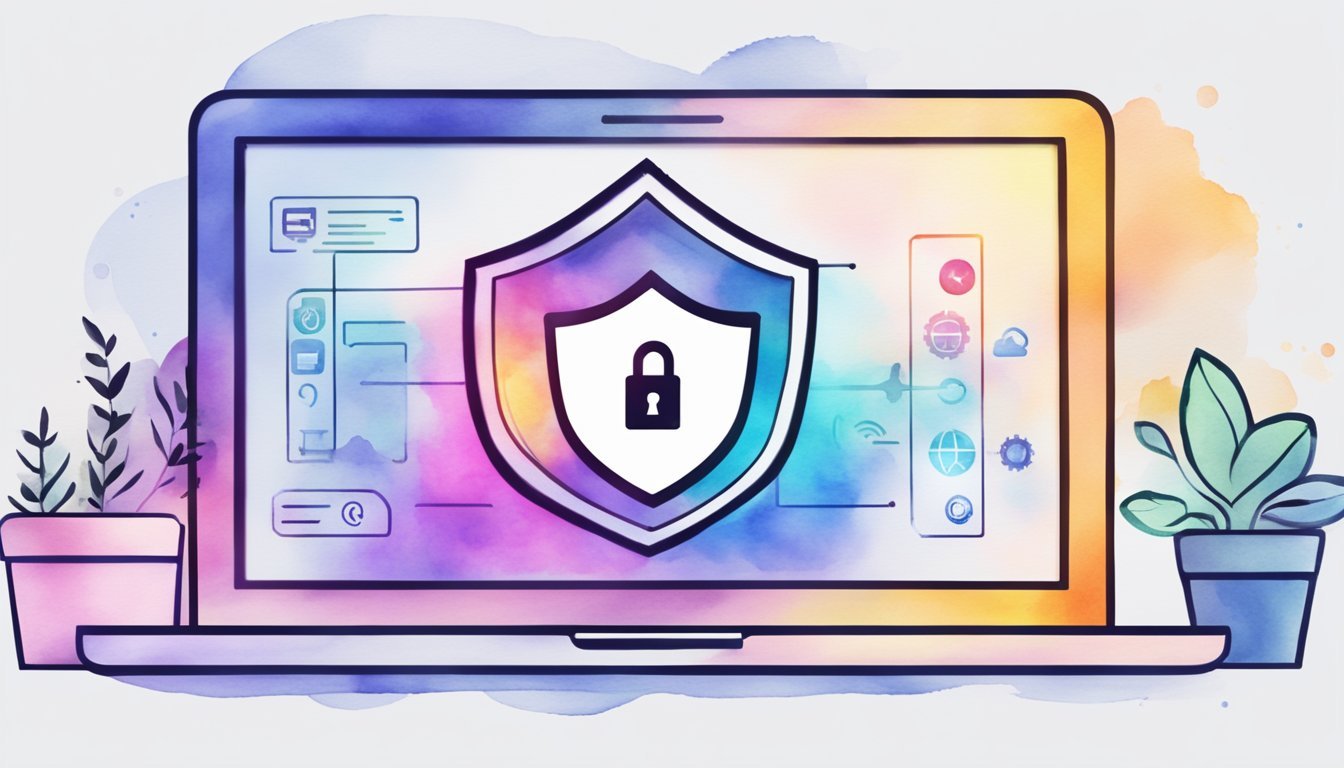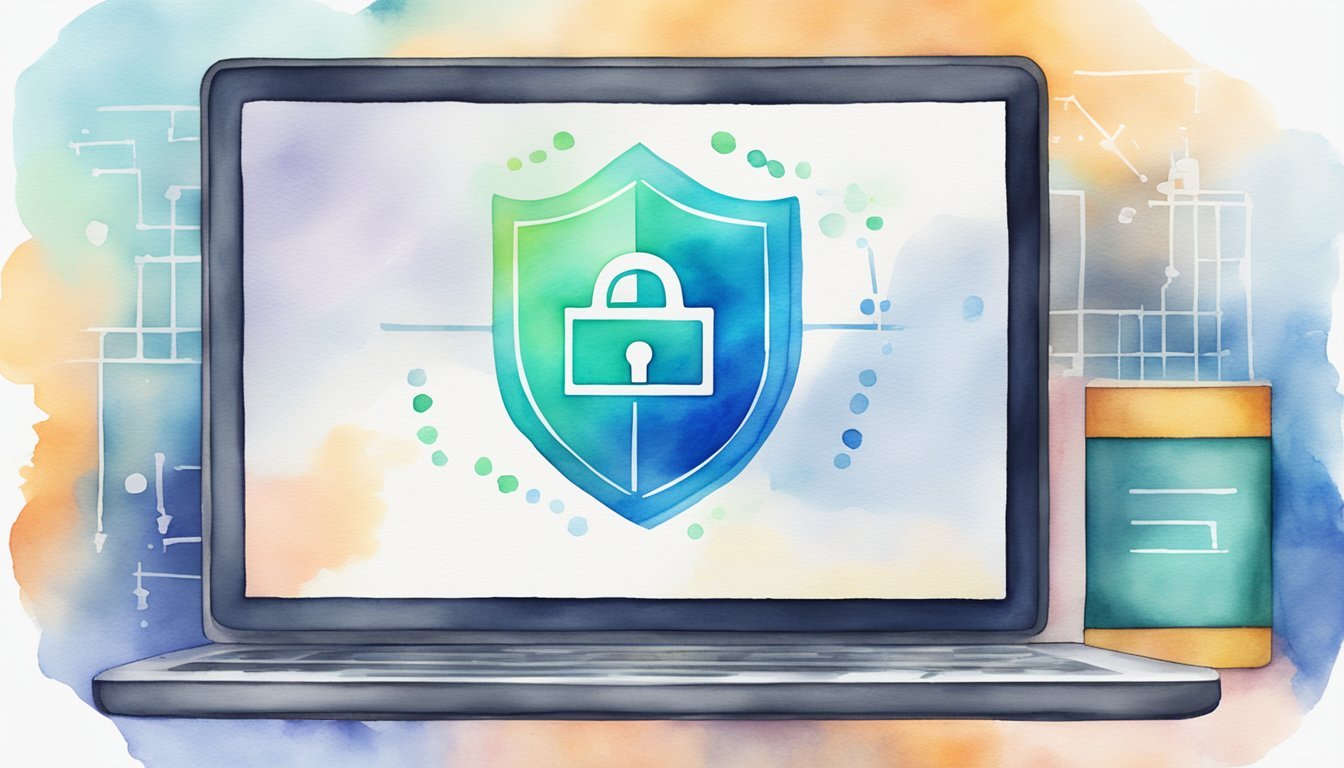10 Online Courses for Ethical Hacking and Cybersecurity: Boost Your Digital Defense Skills

Ethical hacking and cybersecurity are hot topics in today’s digital world.
As more of our lives move online, the need for skilled professionals who can protect networks and data grows.
Many people are looking to enter this exciting field or expand their skills.

Online courses offer a flexible way to learn ethical hacking and cybersecurity fundamentals from home. You can gain hands-on experience with tools and techniques used by security experts.
These courses cover topics like network security, penetration testing, and threat analysis.
They can help you prepare for certifications or advance your career in IT security.
1) Introduction to Cyber Security Specialization (Coursera)
Want to start your journey into cybersecurity? The Introduction to Cyber Security Specialization on Coursera is a great place to begin.
This program, offered by New York University (NYU), consists of four courses designed to give you a solid foundation in modern information and system protection.
You’ll learn about key concepts and technologies used in cybersecurity today.
The courses cover a range of topics, from basic principles to more advanced techniques.
Throughout the specialization, you’ll gain hands-on experience with practical tools and methods.
This approach helps you understand how to apply what you learn to real-world situations.
The goal of this program is to spark a lifelong interest in cybersecurity.
By the end, you’ll have a better grasp of how to protect information systems from various threats.
This specialization is perfect if you’re new to the field or looking to expand your knowledge.
It’s structured to build your skills step by step, making complex topics easier to understand.
You can take these courses at your own pace, fitting them into your busy schedule.
By completing all four courses, you’ll earn a certificate that can boost your resume and career prospects.
2) eLearnSecurity Junior Penetration Tester (eJPT)
The eJPT certification is a great starting point for those interested in ethical hacking.
It’s designed to give you a solid foundation in penetration testing skills.
This course covers a wide range of topics.
You’ll learn about assessment methodologies, network security, and web application security.
The program also includes hands-on labs to practice your skills.
One of the best things about eJPT is its practical approach.
You’ll work on real-world scenarios, which helps you understand how to apply your knowledge.
The exam for eJPT is unique.
It’s a 148-hour training program that tests your ability to perform actual penetration testing tasks.
This format gives you a taste of what real penetration testing work is like.
To pass the exam, you need to answer at least 15 out of 20 questions correctly.
You have 72 hours to complete the exam after you start.
Many people find the eJPT certification valuable for their careers.
It can help you stand out when applying for entry-level cybersecurity jobs.
If you’re considering this certification, be prepared to put in some study time.
While it’s designed for beginners, the material can be challenging.
But with dedication, you can succeed and take a big step in your ethical hacking journey.
3) Certified Ethical Hacker (CEH) (EC-Council)
The Certified Ethical Hacker (CEH) is a top ethical hacking certification.
It’s offered by EC-Council, a respected name in cybersecurity training.
CEH teaches you to think like a hacker.
You’ll learn about different attack methods and how to stop them.
This knowledge helps you protect systems better.
The course covers the five phases of ethical hacking.
These include reconnaissance, scanning, gaining access, maintaining access, and covering tracks.
You’ll study various topics in the CEH program.
These include network security, malware threats, and web app hacking.
You’ll also learn about social engineering and cloud computing risks.
The CEH online training is flexible.
You can learn at your own pace from anywhere.
This makes it great for busy professionals.
After completing the course, you’ll take an exam.
Passing it earns you the CEH certification.
This cert is recognized worldwide and can boost your career.
For those who excel, there’s a higher level.
The CEH (Master) credential shows advanced skills.
It requires passing a tough 6-hour practical exam.
CEH is ideal if you want to work in cybersecurity.
It’s useful for roles like security analyst, penetration tester, or IT security manager.
4) The Complete Cyber Security Course (Udemy)

This course on Udemy gives you a strong base in cyber security.
It covers many key topics that will help you understand how to protect digital systems.
You’ll learn about network security and how to keep data safe.
The course teaches you ways to spot and stop cyber attacks before they cause harm.
The lessons include hands-on practice.
You’ll work with real tools that cyber security pros use every day.
This helps you gain useful skills for the job market.
The course is split into different sections.
Each part builds on the last, so you can learn step-by-step.
You start with the basics and move to more complex ideas.
As you go through the course, you’ll learn about things like firewalls and encryption.
These are key tools for keeping information private and secure.
The teacher explains things in a clear way.
Even if you’re new to cyber security, you can follow along and grasp the main ideas.
By the end, you’ll have a good grasp of how to protect systems from cyber threats.
This knowledge can be useful in many tech jobs.
The course also covers some ethical hacking methods.
You’ll see how hackers think, which helps you defend against their tricks better.
5) Learn Ethical Hacking From Scratch (Udemy)
This course offers a strong foundation in ethical hacking and cybersecurity.
You’ll get over 15 hours of video content covering key concepts from the ground up.
The course teaches you to use more than 30 hacking tools.
These include popular options like Metasploit, Aircrack-ng, and SQLmap.
You’ll gain hands-on experience with 85+ real-life hacking examples.
No prior knowledge is needed to start this course.
It’s designed for beginners but also offers value for those with some experience.
You’ll learn how to hack and secure both WiFi and wired networks.
The course also covers hacking cloud servers, giving you a wide range of skills.
By the end, you’ll understand how to think like a black hat hacker.
This knowledge helps you secure systems like cybersecurity experts.
The course is regularly updated to stay current with the latest hacking techniques and tools.
This ensures you’re learning skills that are relevant in today’s cybersecurity landscape.
You’ll practice in a safe, controlled environment.
This allows you to experiment without risking damage to real systems or breaking any laws.
6) Cybersecurity Certification by Stanford University (Coursera)
Stanford University offers an Advanced Cybersecurity Certificate through its online learning platform.
This program is designed to help you build strong skills in cybersecurity.
The certificate requires you to complete 6 courses.
One of these is mandatory, while you can choose the other 5 from a list of options.
This setup lets you tailor your learning to your interests and career goals.
In these courses, you’ll learn how to create secure code and protect existing systems.
You’ll also study important tools like cryptography and cross-domain security measures.
The program is self-paced, which means you can learn at a speed that works for you.
This flexibility is great if you’re working or have other commitments.
Stanford’s world-class instructors and faculty teach these courses.
You’ll benefit from their expertise and get up-to-date knowledge about the cybersecurity field.
When you finish the program, you’ll earn a Stanford Certificate of Achievement in Advanced Cybersecurity.
This certificate shows that you’ve completed at least 60 hours of Stanford coursework.
This program can help you prepare for a career in cybersecurity.
It’s a good choice if you want to learn from a top university and gain practical skills.
7) CISSP Certification Training (ISC)²
The CISSP certification is a highly respected credential in the cybersecurity field.
It proves your ability to design and manage top-notch security programs.
To help you prepare, (ISC)² offers Official ISC2 Training options.
These courses are designed to set you up for exam success.
You can choose from different learning styles.
The Online Self-Paced CISSP Training uses AI to tailor your learning experience.
It adapts to your needs, helping you study more efficiently.
This course is organized by domain, following the exam outline.
This structure makes learning easier and more intuitive.
The training covers all eight CISSP domains.
You’ll learn about security and risk management, asset security, security architecture, and more.
By earning your CISSP, you join a global community of cybersecurity professionals.
You gain access to exclusive resources and networking opportunities.
The certification demonstrates your expertise to employers.
It shows you can effectively lead security initiatives in various organizations.
Remember, the CISSP exam is challenging.
Proper preparation is key. (ISC)²’s official training materials are designed to give you the best chance of success.
8) Cybersecurity Fundamentals (edX)

EdX offers a comprehensive Cybersecurity Fundamentals course that can help you start your journey in ethical hacking.
This course covers essential topics in cybersecurity and provides a solid foundation for beginners.
You’ll learn about basic security principles and how to apply them in real-world scenarios.
The course also introduces you to common threats and vulnerabilities in computer systems and networks.
Throughout the program, you’ll gain hands-on experience with various security tools and techniques.
This practical approach helps you understand how to protect systems from potential attacks.
The course is designed to be accessible to learners with different backgrounds.
Whether you’re a complete beginner or have some IT experience, you’ll find valuable information to enhance your skills.
By completing this course, you’ll be better prepared to pursue more advanced topics in ethical hacking and cybersecurity.
It’s an excellent starting point for anyone interested in building a career in this field.
EdX’s flexible learning format allows you to study at your own pace.
You can access course materials anytime, making it easier to balance your learning with other commitments.
9) Advanced Network Security (Pluralsight)

Pluralsight offers a comprehensive course on Advanced Network Security that can boost your cybersecurity skills.
This course is ideal if you want to deepen your understanding of network protection strategies.
The program covers essential topics like deploying Cisco’s security products and securing various network planes.
You’ll learn how to use Cisco’s Validated Designs to properly set up your network architecture.
Throughout the course, you’ll gain hands-on experience with key security tools and techniques.
This practical approach helps you apply what you’ve learned to real-world scenarios.
The instructor guides you through complex concepts in a clear, easy-to-follow manner.
You’ll explore topics such as threat detection, access control, and encryption methods.
By the end of the course, you’ll be equipped to handle advanced network security challenges.
This knowledge can be valuable for both ethical hacking and defensive cybersecurity roles.
The course is self-paced, allowing you to learn at your own speed.
You can access the materials anytime, making it convenient for busy professionals.
Pluralsight’s platform offers additional resources like quizzes and coding exercises to reinforce your learning.
These features help ensure you fully grasp the advanced concepts covered in the course.
10) Offensive Security Certified Professional (OSCP)
The OSCP is a highly respected ethical hacking certification in the cybersecurity world.
It focuses on practical penetration testing skills and is offered by Offensive Security.
To earn this certification, you’ll need to complete a challenging 24-hour exam.
The test involves hacking into multiple systems and writing a detailed report.
The OSCP course, known as PEN-200, teaches you penetration testing with Kali Linux.
You’ll learn how to find and exploit vulnerabilities in various systems.
The certification is hands-on and doesn’t rely on multiple-choice questions.
This approach ensures you can apply your skills in real-world scenarios.
Many employers value the OSCP because it proves you can think like a hacker and defend against cyber attacks.
It can open doors to exciting career opportunities in cybersecurity.
To prepare for the OSCP, you’ll need a strong foundation in networking, Linux, and basic scripting.
The course provides lab access to practice your skills.
The OSCP is known for being tough, but it’s also rewarding.
It can help you stand out in the competitive field of cybersecurity.
Importance of Ethical Hacking
Ethical hacking plays a crucial role in protecting digital assets and strengthening cybersecurity defenses.
It helps organizations find and fix vulnerabilities before malicious hackers can exploit them.
Protecting Sensitive Data
Ethical hacking helps safeguard sensitive information from falling into the wrong hands.
By simulating real-world attacks, ethical hackers can:
• Identify weak points in data storage systems
• Test encryption methods
• Assess access controls
This proactive approach allows companies to improve their data protection measures.
You can better protect customer information, financial records, and trade secrets from theft or unauthorized access.
Ethical hackers also help organizations comply with data protection regulations.
They can check if your systems meet industry standards and legal requirements for data security.
Identifying Security Vulnerabilities
Finding security flaws is a key benefit of ethical hacking.
Ethical hackers use various techniques to spot weaknesses in:
• Network infrastructure
• Web applications
• Mobile apps
• IoT devices
By discovering these issues, you can patch vulnerabilities before cybercriminals exploit them.
This process helps prevent data breaches, system downtime, and financial losses.
Ethical hacking also tests your incident response plans.
It shows how well your team can detect and react to potential security threats.
This practice helps you improve your overall security posture and readiness for real attacks.
Cybersecurity Fundamentals
Cybersecurity fundamentals cover the basic concepts and practices essential for protecting digital systems and data.
These include understanding common threats and implementing key security measures.
Understanding Cyber Threats
Cyber threats come in many forms.
Malware, such as viruses and ransomware, can infect your devices and steal or encrypt data.
Phishing attacks trick you into revealing sensitive information.
Hackers may exploit software vulnerabilities to gain unauthorized access.
Distributed Denial of Service (DDoS) attacks can overwhelm systems, making them unusable.
Social engineering tactics manipulate people into bypassing security protocols.
It’s crucial to stay informed about these evolving threats to protect yourself and your organization effectively.
Basic Security Measures
Strong passwords are your first line of defense.
Use unique, complex passwords for each account and consider a password manager to keep track of them.
Enable two-factor authentication whenever possible.
This adds an extra layer of security beyond just a password.
Keep your software and operating systems up to date.
Regular updates often include important security patches.
Use reputable antivirus software and keep it current.
This helps detect and remove malware before it can cause harm.
Be cautious when clicking links or downloading attachments, especially from unknown sources.
These can often be vectors for cyberattacks.
Regularly back up your data to a secure, offline location.
This can save you if your system is compromised or data is lost.
Frequently Asked Questions

Ethical hacking courses offer various options for learners at different skill levels.
These courses cover topics like cybersecurity fundamentals, penetration testing, and hacking methodologies.
What are the top-rated online courses for beginners in ethical hacking?
Learn Ethical Hacking From Scratch on Udemy is a popular choice for beginners.
The Introduction to Cyber Security Specialization on Coursera is another great starting point.
How can I find free ethical hacking courses that offer a certificate upon completion?
Some platforms offer free courses with optional paid certificates.
Check Coursera and edX for free audit options.
You can upgrade to get a certificate if needed.
Which platforms offer the best learning experiences for ethical hacking courses?
Udemy, Coursera, and EC-Council provide high-quality ethical hacking courses.
These platforms offer a mix of video lectures, hands-on labs, and quizzes to enhance your learning.
What is the typical cost range for ethical hacking and cybersecurity courses?
Prices vary widely.
Free courses are available, while paid options can range from $20 to $500 or more. Certified Ethical Hacker (CEH) certification courses are often more expensive.
Can beginners effectively learn ethical hacking through online courses?
Yes, beginners can learn ethical hacking online.
Start with foundational courses like Introduction to Cyber Security Specialization to build a strong base before tackling more advanced topics.
Are there any resources available for downloading course materials for ethical hacking?
Many courses allow you to download lecture slides and notes.
Some platforms like Udemy let you download video lectures for offline viewing.
Always check the course policy on downloadable content.






